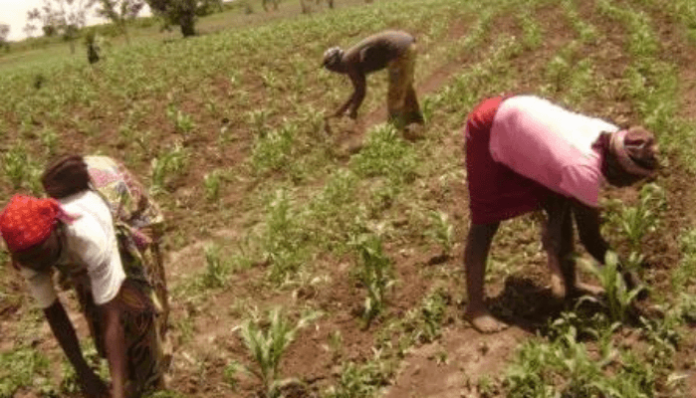The Nigerian agricultural sector is grappling with increasing challenges as food insecurity tightens its grip on the nation.
Senator Abubakar Kyari, the Minister of Agriculture and Food Security, has emphasized the urgent need for Nigeria to transition from merely feeding its population to generating wealth through agriculture.
Speaking at the 5th Meeting of the Lake Chad Basin Governors Forum in Maiduguri, he underscored innovation and productivity as key drivers of this transformation.
According to the United Nations World Food Programme (WFP), food insecurity in Nigeria is projected to affect 33 million people by 2025, up from 25 million in the previous year. This alarming rise is driven by inflation, climate shocks, corruption, and persistent armed conflicts, particularly in Northern Nigeria.
Recent data from the National Bureau of Statistics (NBS) shows that food prices have surged by 95% nationwide, with the South East region experiencing the highest inflation. Factors such as restricted land access, low income levels, and high unemployment have exacerbated the crisis, leading to a decline in local food production. Additionally, conflicts between farmers and herders, alongside unpredictable weather conditions, have further strained the sector.
Senator Kyari reaffirmed the government’s commitment to enhancing food production through research, smart agriculture, and climate-resilient seeds. In response to the crisis, the ministry has initiated the distribution of over 2.1 million bags of fertilizers to farmers and is providing food aid to flood-affected communities.
One major setback in the sector has been the recent crisis in onion production. The Minister convened an emergency meeting with the National Onion Producers, Processors, and Marketers Association of Nigeria (NOPPMAN) following reports of an impending 40% shortfall due to the circulation of adulterated seeds. NOPPMAN swiftly identified the supplier of the substandard seeds, prompting intervention by the Department of State Services (DSS) to ensure accountability.
Nigeria remains one of the world’s leading onion producers, contributing approximately 4.3% to global production, with nearly 245,000 tons recorded in 2020. Addressing the current challenges in onion farming is critical to maintaining and expanding this position.
The food crisis is particularly severe in the South East region, where rising costs and systemic agricultural failures have worsened conditions.
Anambra State, with its 4,844 square kilometers of arable land, has been identified as a potential hub for reversing this trend. Experts argue that the state’s fertile land and favorable climate make it suitable for cultivating crops such as oil palms, maize, rice, yams, and cassava.
To combat food insecurity, analysts advocate for diverse solutions, including urban agriculture, aquaculture, and the establishment of farm clusters. These clusters would allow smallholder farmers to pool resources, share expertise, and enhance productivity. Additionally, improved irrigation systems could reduce dependency on unpredictable rainfall.
Modernizing agriculture remains a crucial strategy for improving yields and mitigating climate change impacts. Precision-agriculture technologies, efficient irrigation practices, and crop diversification could revolutionize food production. Israel’s agricultural success, particularly in the use of drip irrigation and greenhouse farming, serves as a model that Nigeria could adapt to enhance efficiency and sustainability.
Furthermore, engaging the youth in agriculture is essential for the sector’s revitalization. With adequate training and mentorship, young Nigerians could introduce innovative solutions and drive sectoral growth. Senator Kyari remains optimistic, stressing the importance of supporting smallholder farmers and empowering new entrants into the agricultural space.
While the challenges facing Nigeria’s agricultural sector are significant, strategic interventions, technological adoption, and policy reforms could steer the country toward food security and economic transformation.

